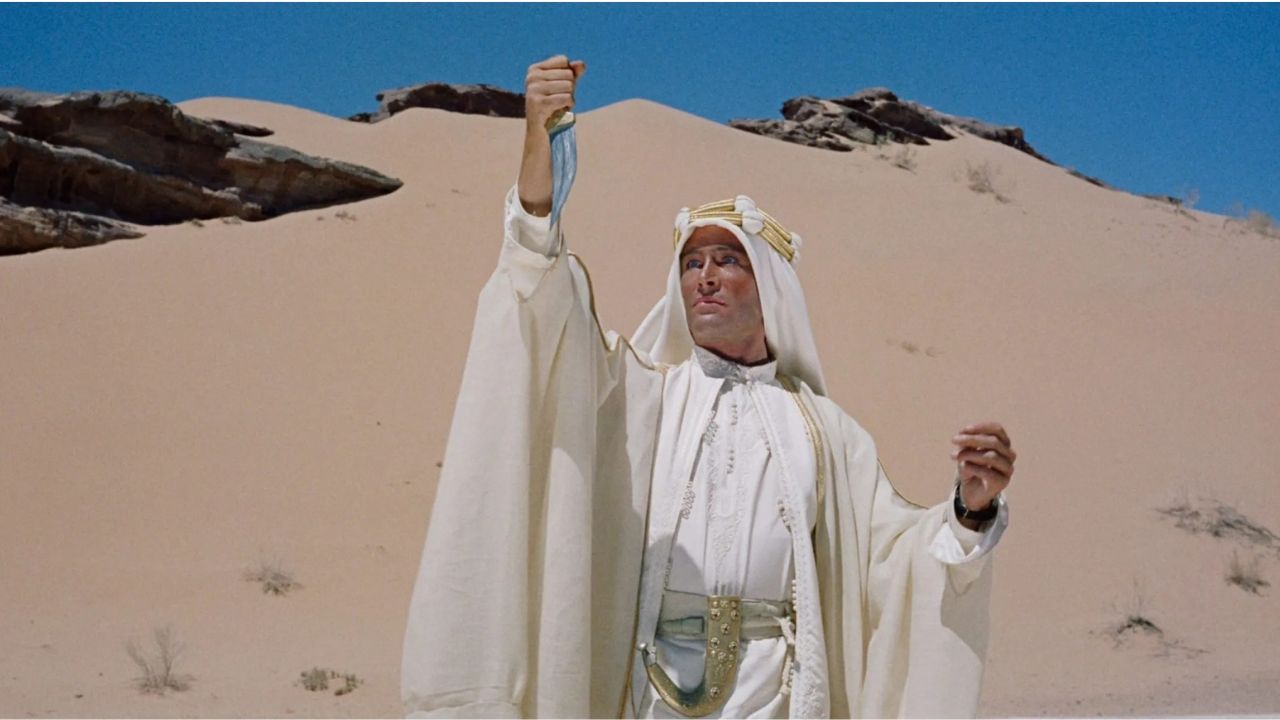Few films in cinematic history match the grandeur and intrigue of Lawrence of Arabia (1962). Directed by David Lean, this epic biographical drama continues to captivate audiences, not just for its breathtaking visuals but for its portrayal of one of history’s most enigmatic figures—T.E. Lawrence. More than 60 years after its release, the film remains a touchstone for epic storytelling, offering a mesmerizing look at a man who played a crucial role in shaping the modern Middle East.
A Story of a Complex Man in Epic Events
T.E. Lawrence, played masterfully by Peter O’Toole, was not just a soldier but a strategist, diplomat, and writer. His story fascinates people today more than ever because he stood at the center of events that shaped the geopolitical landscape we now recognize as the Middle East. The film captures his evolution from an ambitious British officer to a deeply conflicted figure, torn between duty, personal ambition, and an identity crisis that makes him one of cinema’s most compelling protagonists. The screenplay, based on Lawrence’s own memoir Seven Pillars of Wisdom, does an excellent job of balancing historical detail with personal introspection.
Unparalleled Cinematic Scale
Even by today’s standards, Lawrence of Arabia remains visually stunning. Freddie Young’s cinematography, particularly his use of vast desert landscapes, creates an overwhelming sense of isolation, grandeur, and danger. The sweeping shots of the Arabian desert, with its golden dunes stretching endlessly, transport audiences to another world. The infamous mirage scene, in which Omar Sharif’s Sherif Ali emerges from the horizon, is still one of the most memorable entrances in film history. Few movies have been able to replicate this scale, making it a true benchmark in filmmaking.
Maurice Jarre’s Iconic Score
A film of this magnitude demands a powerful musical score, and Maurice Jarre delivers nothing short of perfection. His sweeping, epic compositions elevate every scene, enhancing the sense of adventure and tragedy. The main theme is instantly recognizable, evoking both the beauty and harshness of the desert. Few scores in cinema history are as integral to a film’s identity as this one.
Does the Stage-Like Acting Hold Up?
One element that may not have aged well is the theatrical style of acting. While Peter O’Toole delivers a career-defining performance, his portrayal, along with others, sometimes leans into the overly dramatic, reflecting the stage-acting tendencies of the era. The heightened expressiveness and grand gestures can feel outdated compared to the more naturalistic performances modern audiences are accustomed to. That said, it does add a sense of mythic grandeur, reinforcing Lawrence’s larger-than-life persona.
A Film Often Celebrated but Rarely Understood
Like its hero, Lawrence of Arabia is widely celebrated but often misunderstood. Many recognize its technical brilliance, yet few fully grasp the depth of its commentary on imperialism, identity, and the cost of war. It’s a film that invites repeated viewings, each time offering new layers of meaning. If you haven’t experienced it yet, now is the perfect time to revisit this cinematic masterpiece.
A Must-Watch Classic

